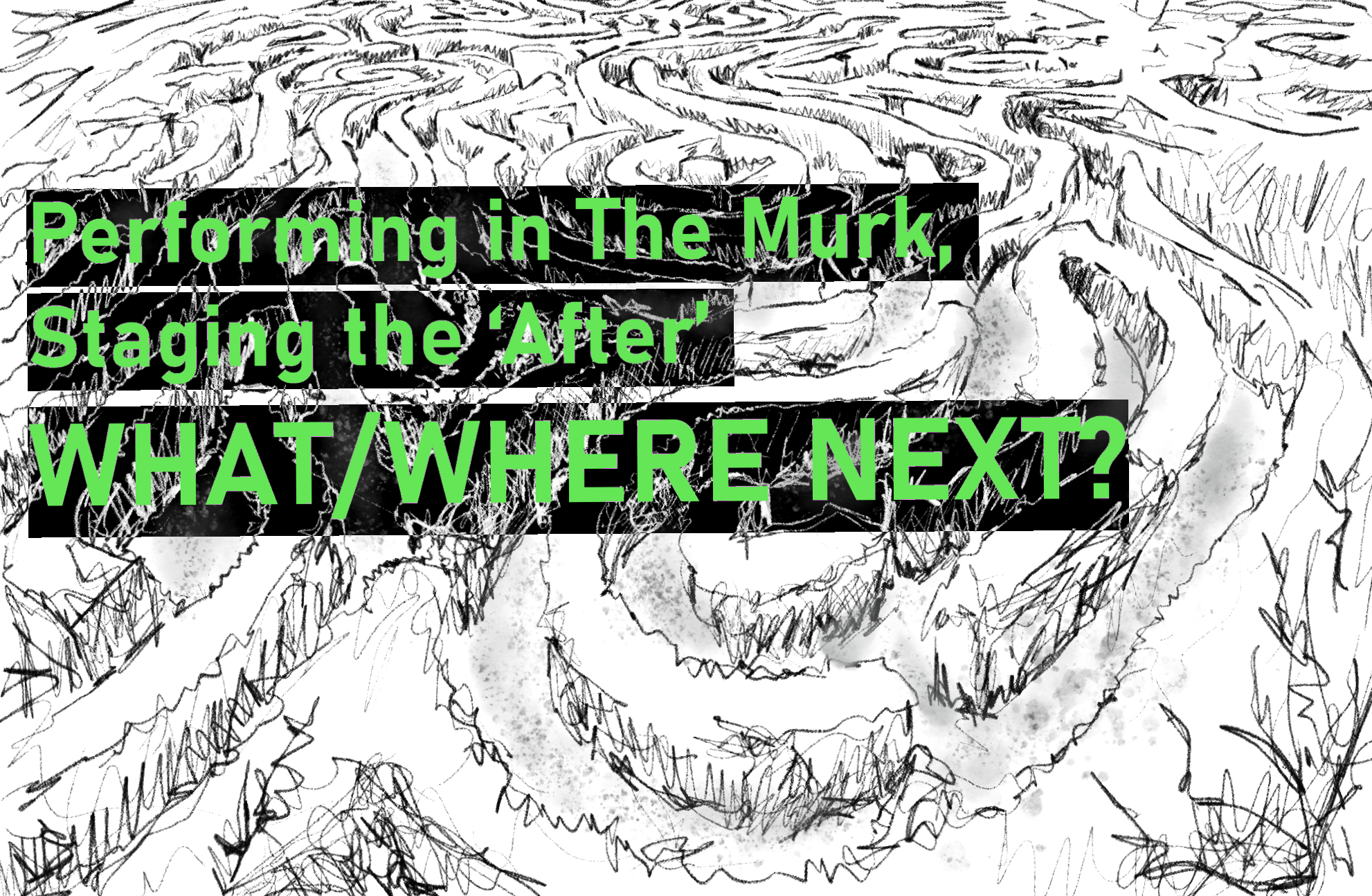TaPRA PGR Symposium 2025
Waverly Theatre, Nottingham Trent University, Nottingham (Hybrid)
June 20, 2025
‘Decay, chaos, and collapse are integral and facilitate the de(con)struction of social, cultural, and political structures in order to develop a (queer) re‑construction’ (Curtis 2024).
In a time marked by uncertainty, exhaustion, and rupture, how do we gather, reflect, reimagine and rebuild?
This year’s TaPRA Postgraduate Research (PGR) Symposium invites submissions that sit within, push against, or emerge from the murky terrains of performance research to ask what might come next. We find ourselves in a moment shaped by overlapping and intensifying crises: global conflicts, ecological emergency, economic collapse, institutional erosion, shrinking space for creative freedom and persistent inequities in the academy and the arts. It is, in no uncertain terms, a mess. For many of us postgraduate and early career researchers, this mess is not simply the backdrop to our work, but the very structure we navigate daily. Precarity is not a temporary moment; it is a condition that shapes how we live, think, and create. And yet, we continue. We continue to make, to write, to research, to hold space, for ourselves and for each other.
At this unsettled juncture, it feels urgent to ask: what does it mean to continue making, researching, and theorising performance? What do we carry with us from this rupture, and what must we let go? What are we resisting, preserving, or building when the past feels unfinished and the future remains unclear?
Inspired by Dr. Harriet Curtis’ recently published book Mess and Contemporary Performance: Complexity, Containment, and Collapse (2024), we want to take some time to linger with the discomfort, precarity, complexity, and creativity of the after. Mess, as Curtis describes, is disorienting; it lingers, it meanders, and it often insists on taking the long way around. But within this drawn-out movement lies possibility. Mess, while unsettling, is also deeply creative. To linger in it is not to be lost, but to open ourselves to the complexity and richness that only emerges when we refuse easy containment. In the slow, meandering routes of mess, we find room to notice, to play, and to reimagine.
As postgraduate and early career researchers, we seem particularly adept at navigating this murk, at finding moments of insight, invention, and hope amid the chaos. So, let us linger in the discomfort, not to tidy it up, but to sit with the complexity and celebrate the creativity that lives within it.
This symposium invites proposals that reflect on, wrestle with, or creatively address questions of:
- Precarity and performance making
- Research as a murky, messy or unfinished process
- Lingering as method, as protest, as survival
- The pressures on academic output in such unsettled times
- Artistic labour, disorientation, exhaustion, error and failure
- Relational practices and the politics of care
- Theatre as a space of mourning, repair, refusal, or resistance
- Slowness, stillness, and refusal as creative strategies
- Performance in the aftermath: recovery, repetition, reconfiguration
- Tactics of survival, improvisation, and resourcefulness
We welcome traditional papers, performance-lectures, short provocations, practice-based research, and other creative-critical formats. We especially encourage submissions from scholars working across decolonial, queer, disabled, and feminist perspectives.
The symposium will be an hybrid event – held in Waverly Theatre at Nottingham Trent University, Nottingham for in-person attendees and on zoom for those joining online. The symposium is free to attend and open to all postgraduates and early career researchers, based anywhere in the world.
We invite proposals for the following:
- A Paper – A solo or shared presentation (10-15 mins)
- A Provocation – A short offer or discussion point (5min)
- A Practice Sharing – A sharing of documentation or a live (digital) activity (10-15 min)
Please send a 250-300-word abstract to pgtapra@gmail.com with an additional short biography of no more than 50 words. Please let us know in your covering email if there are access provisions that would better enable you to participate.
Deadline for abstracts: 20 May 2025
Intimation of Acceptances: 1 June, 2025
(Please note that you do not have to be a member of TaPRA to apply/attend.)
Event organisers: Alisha Ibkar (University of Manchester), Eleanor Field (Northumbria University), Nic Farr (Royal Central School of Speech and Drama)

